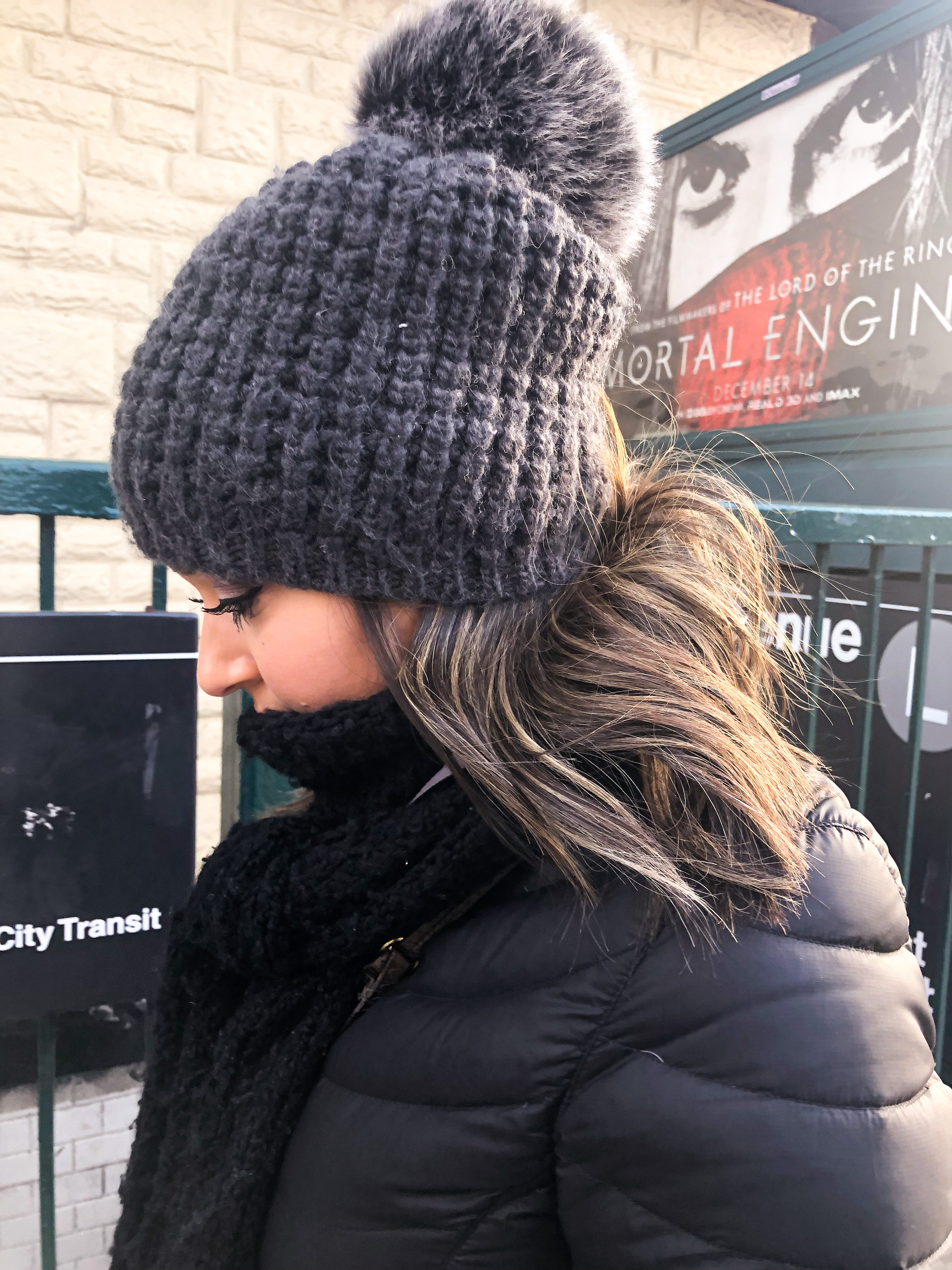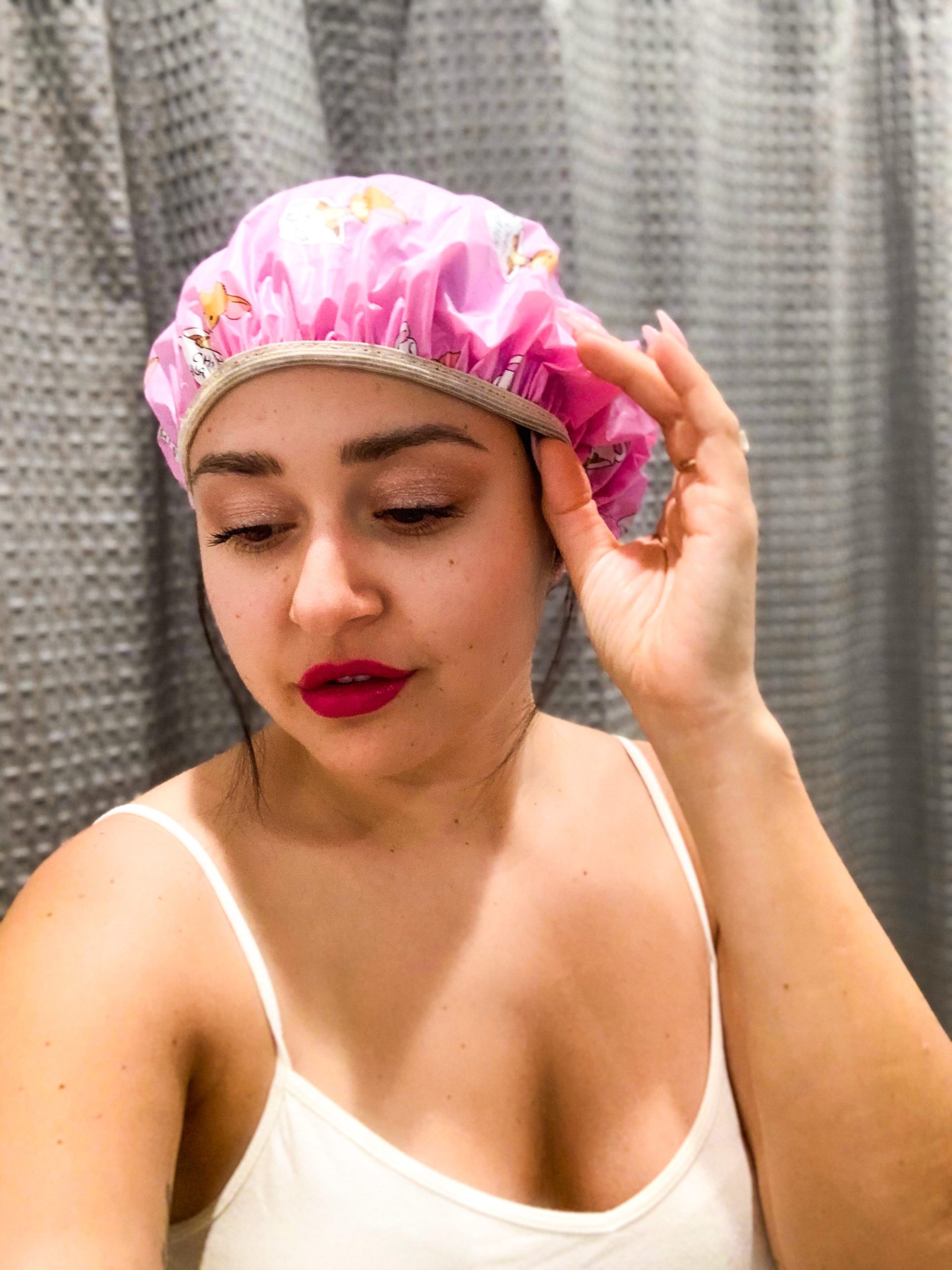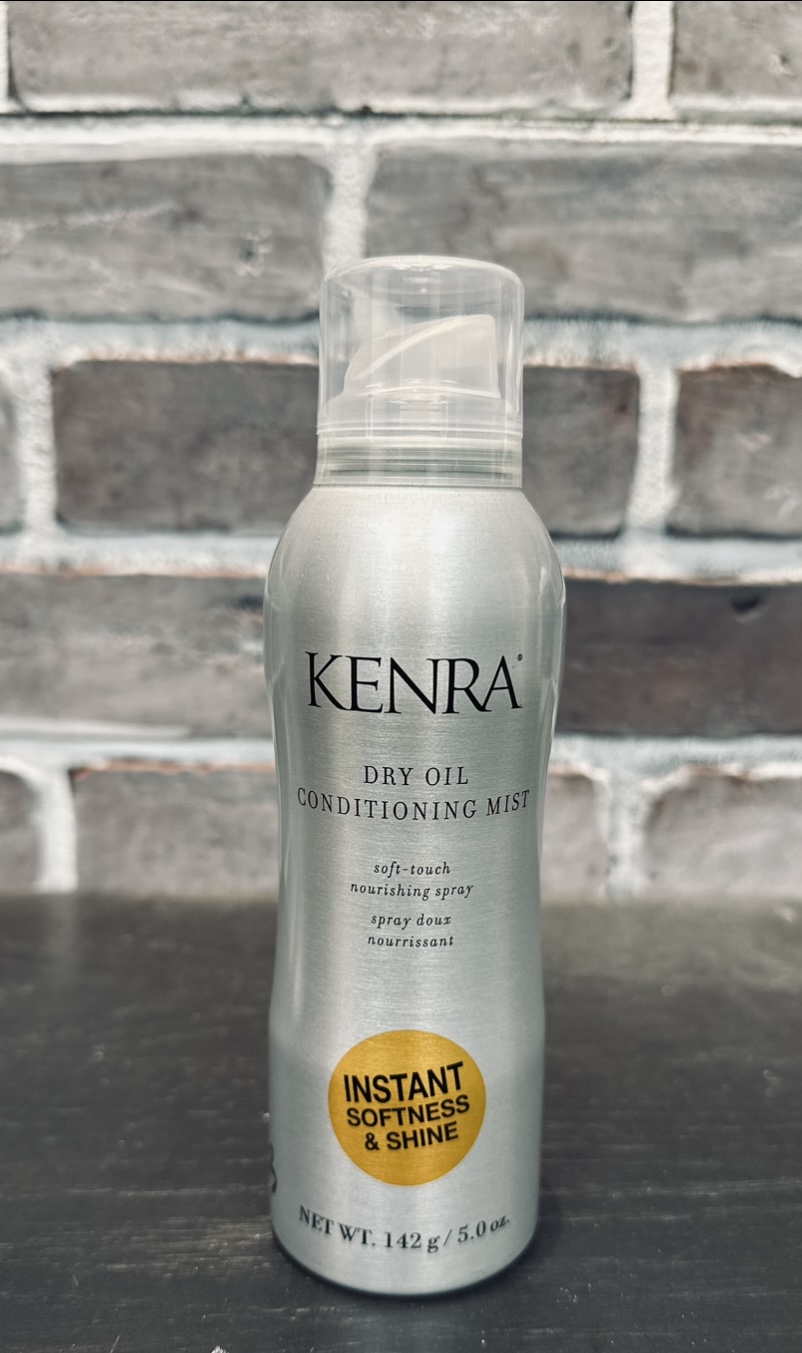
Why You Have Dry Hair and Scalp In The Winter & How To Fix It
It’s that time of year again! We’re bundled up, some of us are shoveling snow, and we’re preparing for the holiday season. And in all of the hustle and bustle, you may have noticed that your hair and scalp are feeling extra dry lately. In this post I’ll talk about why we experience dry hair and scalp in the wintertime, as well as 7 tricks you can do to fix it!
Dry scalp and dandruff are actually two separate conditions, and they require different treatments! They are actually opposites, so it’s extremely important to make sure that you’re treating the right condition. And why dry scalp is more common in the wintertime, check out this post here to learn the difference between the two.
Why our hair and scalp dries out in the winter
In the winter months EVERYTHING is drier and feels a little more crisp. It’s likely that you’ve even had to bust out a humidifier after cranking the heat on in your home. Ultimately, the humidity levels in the air are down and things are starting to freeze.
In the wintertime, we aren’t sweating nearly as much. And when we sweat, we’re increasing the amount of oil that our bodies produce. So with no sweat, we aren’t producing as much natural oil to moisturize and hydrate our hair and skin.
It can be easy to forget about moisturizing your hair when it’s cold outside. You aren’t using after-sun lotion, and you may not even be using heat tools to style it, so it’s common to ditch the leave-in conditioner for your hair as well. But that is NEVER a good idea.
Our hair needs moisturized during all of the seasons, especially during the wintertime. Whether we are coloring and using heat tools on it or not.
7 Ways to fix dry hair and dry scalp in winter
Below I’ve got 7 tips and tricks up my sleeve so that you can avoid the seasonal dryness in your hair and scalp with my favorite winter hair care routine.
***Since I’m sharing the products that I love to use with you guys, this page includes affiliate links to these products. If you take action and purchase a product through clicking one of my links, I’ll make some commission money from it at no extra cost to you. This enables me to be able to continue giving you awesome hair tips, so thanks! ***
1. Don’t wash your hair as frequently in the wintertime

Since its cooler out and we aren’t sweating as much, it’s best to skip shampooing as much as possible. When we shampoo, we’re stripping the natural oils from our hair and scalp. Those natural oils are what keep our hair and scalp hydrated and moisturized.
Depending on your hair type, I recommend shampooing 1-3 times a week. If you have thinner, finer hair then you’ll need to shampoo more often than if you have thicker, coarser hair. This is because there’s less hair to absorb the oils from your scalp.
Check out my post here to determine how often you should be washing your hair based on your hair type,
or my post here to learn how you can prolong the time between washes.
2. Moisturizing & Tea Tree Shampoos & Conditioners for dry hair and scalp
If your hair is feeling brittle and dry, try switching up your shampoo and conditioner to something with hydrating benefits. This will help deliver lost moisture to the inner layers of your hair strand, rather than stripping it away like other shampoos will do.
And if a dry scalp is your main concern, you’ll want to opt for a Tea Tree product. Tea tree oil has natural anti-fungal properties to reduce dandruff. It also soothes and moisturizes a dry and flaky scalp. So tea tree really is the ultimate natural scalp care ingredient.
Just be prepared for the cooling affect when you use it. It can catch you off guard if you aren’t prepared for it!
- Paul Mitchell Moisturizing Lavender Mint Shampoo & Conditioner
- Paul Mitchell Tea Tree Shampoo & Conditioner
- Paul Mitchell Tea Tree Shampoo & Conditioner For Color Treated Hair
3. Do weekly hair and scalp masks in the winter
Depending on the severity of the dryness, you should be doing a conditioning treatment on average once a week. But if your hair is bleached and damaged or your scalp is severely dry, then it should be every time you wash your hair.
And while coconut oil and other home remedies can smooth the outer layer of your hair, they are not sufficient conditioning treatments. True conditioning treatments are specifically formulated to penetrate the cortex layer of your hair to deeply moisturize. Coconut oil and mayonnaise will not go deep into the hair strand to actually moisturize the inner layers. They just sit on top, which can actually block moisture from getting into your hair and can actually make it worse.
If you have a dry scalp, I recommend applying a scalp treatment to your scalp at the same time you apply the deep conditioner to your hair. You can do this with a separate treatment, or use the Tea Tree one below that is formulated for both hair and scalp.
To learn more about choosing a deep conditioner based on your hair type and what your hair needs, see this post here.
4. Use leave-in moisturizing products
Just as it is important to moisturize your face and skin after a shower, the same is true for your hair with a leave-in conditioner. This is something that should never be skipped–even if you don’t color your hair or use heat tools!
A leave-in conditioner can come in several forms for different hair types ranging from heavy duty to lightweight.
If you have fine or thin hair, you’ll want to stick to lighter products that won’t weigh your hair down. And if you have thick, coarse, or curly hair, I actually recommend both a cream style and an oil style leave in conditioner. You’ll need something a little heavier that will deliver moisture and smooth your cuticle down.
And if scalp itchiness is something you’re struggling with, I recommend using a leave-in medicated scalp treatment. This is formulated with hydrocortisone and aloe to reduce itchiness and deliver moisture to your scalp.
- Intense Therapy, Lightweight Leave-In Conditioner
- Olaplex No. 6 Bond Smoother For Frizzy Hair
- Aquage Silkening Oil Treatment For Frizzy Hair
- Scalpicin Anti-Itch Treatment
5. Tame static and flyaways with dry conditioner

One of the biggest hidden treasures in the hair product market is dry conditioner. Not many have heard of it, but it is an incredible tool. Dry conditioner smooths flyaway hair, closes the cuticle to soften frizzy hair, and tames static electricity without weighing the hair down or making it greasy.
It comes in an aerosol can just like dry shampoo does, and works well when used after dry shampoo so you don’t have that gritty feel.
To use, hold it 8-10 inches away from your hair, spray it on and smooth it down with your hands.
To learn more about dry conditioner and its’ benefits, see my post here.
6. Blow dry your hair before going outside
Besides the fact that you would be oh so cold, going outside in below freezing temperatures with wet hair can actually cause your hair to freeze–like into icicles!
I remember as a kid growing up in Cleveland Ohio waiting at the bus stop with wet hair that had turned to icicles. I was fascinated by this and started playing with it.
Next thing I knew I was actually holding a small piece of my hair in my hand, detached from the rest of my hair!
My hair froze and then broke completely off. Luckily this was just a small piece, but I never went outside in the cold with wet hair ever again. Lesson learned!
7. Avoid cotton or wool hats and scarfs in the winter
Cotton and wool hats or scarfs without a lining in them will make your hair frizzy.
Just as a cotton pillowcase isn’t recommended, the same goes for hats. The material will rough up the cuticle (outer layer of your hair) and make your hair frizzy and unruly. It can also cause your hair to get extremely tangled throughout the day.
I’ve had my hair form a giant rats nest knot from rubbing against a wool sweater I was wearing. And when the outer layer of your hair is roughed up, this can cause your hair to lose moisture because the cuticle is not sealed.
Silk is the best material for keeping your hair smooth, but anything with a smooth feel like satin will be a much better option than cotton or wool. Getting a hat with a satin lining inside will do wonders for your hair.
Conclusion
During the winter, it is very common for hair and scalp to feel exceptionally dry.
To combat dry hair in the winter:
- Never go outside in the cold with wet hair
- Avoid cotton or wool hats without a satin lining
- Use moisturizing shampoo and conditioner
- Follow your shower with a leave-in conditioner
- Perform weekly conditioning treatments or masks
- Tame static and fly-aways with a dry conditioner
To combat dry scalp in the winter:
- Don’t shampoo too frequently
- Use a tea tree shampoo and conditioner
- Perform weekly scalp treatments
- Use a leave-in topical product for itchiness
If you have any further comments for me on dry hair and scalp in the wintertime, leave them for me in the comment section. And be sure to subscribe below to make every day a good hair day!


